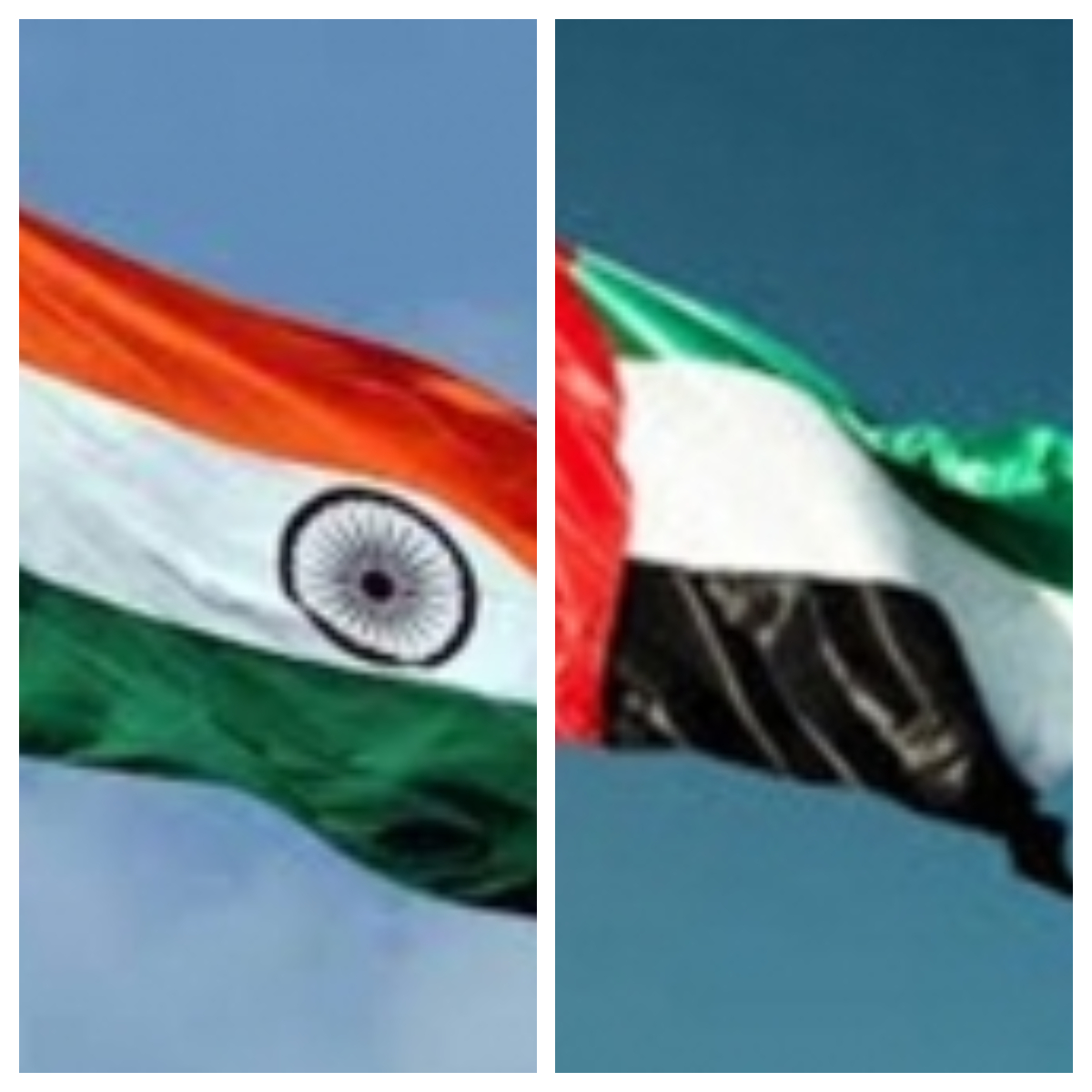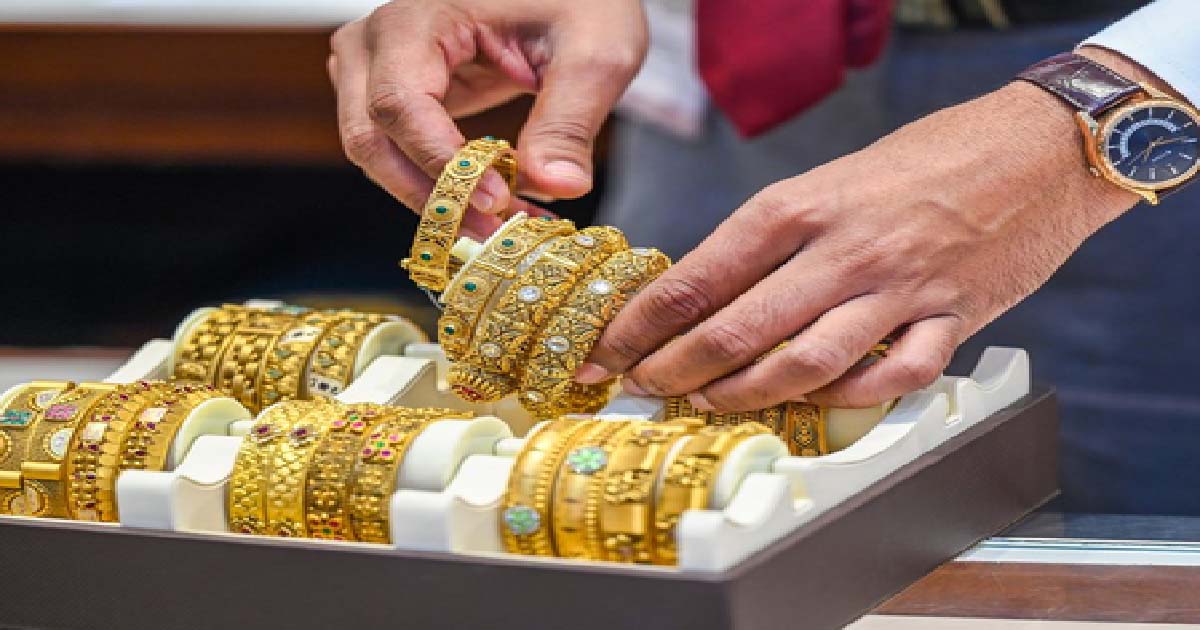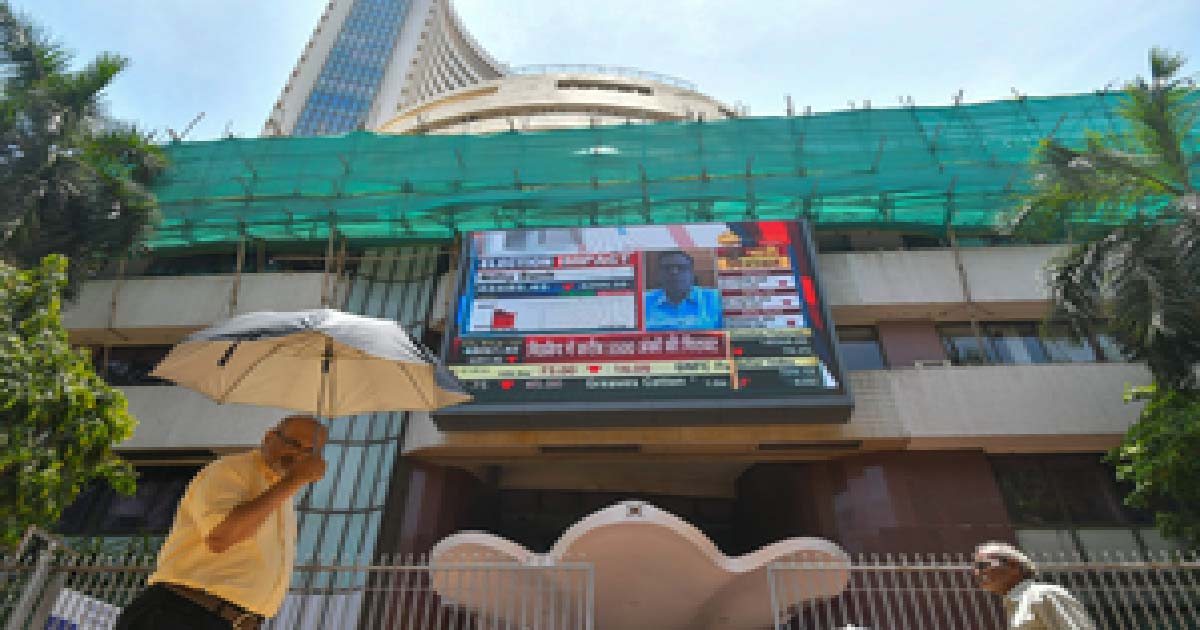Business
CEPA a gamechanger in Indo-UAE relations, UAE to begin reducing tariffs on India’s goods by 90%

Implementation of a Comprehensive Economic Partnership Agreement (CEPA) signed between India and the UAE on February 18, came into force on May 1 with the arrival of the first imports exempted from tariffs. CEPA between the two countries would help encourage trade by reducing custom tariffs by 90 percent and increase non-oil trade from US$45 billion at the end of 2021 to US$100 billion annually in the next five years.
The UAE chose India to sign the first CEPA, which underscores the strategic ties between the two countries. Since the launch of the CEPA programme as part of the ‘Projects of the 50’ initiative, the UAE began talks to sign CEPAs with several countries of strategic importance both regionally and internationally, aiming to sign eight agreements in 2022.
On the annual growth of the trade exchange between the two countries and their targets over the next five years, Abdullah bin Touq Al Marri, Minister of Economy, said the CEPA between the UAE and India will intensify their bilateral trade and add 1.7 per cent, or US$9 billion, to the UAE’s GDP by 2030, increase the UAE’s exports by 1.5 per cent and its imports by 3.8 per cent by 2030. It will also create some 140,000 jobs for talented people and those with specialist skills in the most promising sectors of the UAE economy by 2030.
On the new areas of cooperation, CEPA offers many advantages, including reducing and cancelling tariffs, widening access to markets, and creating opportunities in vital areas, such as aviation, environment, hospitality, logistics, investment, construction, financial services, and digital trade.
The CEPA will offer numerous advantages for small and medium-sized enterprises (SME) in the private sectors of both countries. It represents a historically strategic step to promote economic integration and cooperation between the two countries and establish a solid foundation that will open new horizons between their business communities.
The CEPA will also open access to different markets and create new investments and opportunities in critical areas, including energy, environment, and digital trade. The agreement covers 11 service sectors and more than 100 sub-sectors, including business services, professional services, accounting, real estate, advertising, communications, building and construction, related services, educational services, environmental services, financial services, insurance, social and health services, and travel and tourism service.
India is the UAE’s largest trading partner in terms of non-oil exports, equivalent to 14 percent of the country’s total global exports, while the UAE is also India’s third-largest trading partner and accounts for 40 percent of its trade with Arab countries.
The most prominent commodities exported from the UAE to India and the commodities imported from India are mainly gold, diamonds and jewellery, machinery, electrical appliances, petroleum and plastics, and minerals that include iron, steel, and aluminium. The two countries account for more than 16 per cent of the global trade in diamonds, gold and jewellery, and the other country accounts for 20 per cent of their national gold trade.
The figures show that three percent of the UAE’s trade during the Covid-19 pandemic was with India, which is among the 15 most important exporters of food commodities in the world, and the UAE is among the most important recipients of its exports from this commodity group, coming in third place.
India is ranked second in terms of the UAE’s total trade in food commodities and products, and is one of most important suppliers in the UAE’s food commodities market, contributing 10 per cent of the UAE’s total imports of food commodities and products.
Talking to IANS, Chandu Siroya, V.P. Dubai Gold and JwellaryGroup, who received the first consignment under CEPA said that the Government of India made a special effort to send the shipment on the first day of CEPA by clearing and sending the shipment on March 5, 2022. Assisted by the Dubai Customs office in the whole process and the shipment was cleared in 15 Minutes Duty Free. The customs assisted us in getting the approval code from Dubai Trade for the exemption. The declaration was done online, and the approval was received instantaneously. It was a very fast seamless process. Kudos to the authorities for doing this under a brand-new agreement.
Dr. Azad Moopen, Founder Chairman and Managing Director of Aster DM Healthcare said that I am delighted to see the strategic ties between UAE and India gaining momentum, and with the Comprehensive Economic Partnership Agreement (CEPA), many corridors for trade, investment, services and employment will open up reciprocally. The UAE has been second home for over 3.4 million Indians and India’s largest trade partner for many years. The leaders of both countries share an amicable bond and this is just another step towards strengthening ties and the relationship between the two countries. With this agreement, we can expect the business between the two countries to increase exponentially.
Paras Shahdadpuri, Chairman, Nikai Group of Companies said that CEPA � Comprehensive Economic Partnership Agreement, will give a powerful thrust to the bilateral economic relationship. CEPA is equivalent to the FTA which was originally under negotiations between India and GCC which however was taking longer time to conclude. Therefore, the CEPA between the two countries. This will enhance the trade and economic activity between the two countries with manufactured goods of the two countries being imported without incurring any custom duties.
Kamal Vachani, Group Director and Partner at Al Maya Group commented on CEPA that The Comprehensive Economic Partnership Agreement (CEPA) between India and the UAE is truly a matter of significant importance in the context of its growing economic ties between the two countries. Trade between India and the UAE has always been an important factor in driving economic partnership. India is among the top three trading partners of the UAE and the signing of a new free trade agreement between both the countries will take the trade to the next level. Specially the trading groups like us, who are catering and trading between both countries are going to get its benefits at every step.
Business
Gold, silver tumble as hopes of December Fed Rate cut fade

Mumbai, Nov 18: Gold and silver prices dropped sharply in the domestic futures market on Tuesday morning as hopes of a US Federal Reserve rate cut in December faded and concerns over US tariffs eased.
This reduced the appeal of safe-haven assets like bullion. At early trade, MCX Gold December futures were trading 1.19 per cent lower at Rs 1,21,466 per 10 grams.
MCX Silver December contracts also declined 1.65 per cent to Rs 1,52,750 per kg.
“Gold has support at $4000-3965 while resistance at $4075-4110. Silver has support at $49.70-49.45 while resistance is at $50.75-51.10,” market watchers said.
“In INR gold has support at Rs1,22,350-1,21,780 while resistance at Rs1,23,750-1,24,500. Silver has support at Rs1,53,850-1,52,100 while resistance at Rs1,56,540, 1,57,280,” they added.
Internationally, gold prices slipped for the fourth straight session on Tuesday.
A stronger US dollar and weakening expectations of a rate cut next month continued to weigh on the metal.
The dollar index rose to 99.59, making gold more expensive for buyers using other currencies.
Gold, which is priced in US dollars, becomes costlier when the greenback strengthens, resulting in reduced demand.
The recent US government shutdown, which lasted a record 43 days, had delayed the release of important economic data, creating uncertainty about the condition of the world’s largest economy.
With the shutdown now over, attention has shifted to key data releases expected this week, including the September nonfarm payrolls report on Thursday.
These numbers will play a major role in shaping expectations around the US Federal Reserve’s next move on interest rates.
Meanwhile, Fed officials continue to send mixed signals on the future path of monetary policy, adding further uncertainty to the market.
With no major positive fundamental triggers in recent days, bulls remain hesitant—especially with both metals still trading at historically high levels.
“Traders now await a fresh round of US economic data later this week. Meanwhile, a firmer US Dollar Index and slightly higher 10-year Treasury yields added pressure to precious metals,” analysts said.
Business
Sensex, Nifty open lower on weak global cues

Mumbai, Nov 18: Indian stock markets opened lower on Tuesday as weak global cues weighed on investor sentiment. Both benchmark indices slipped 0.2 per cent at the opening bell.
The Sensex dropped 195 points to trade at 84,756 in early deals, while the Nifty fell 64 points to 25,949. Most heavyweight stocks were under pressure, dragging the indices down.
“Immediate resistance now lies at 26,100, followed by 26,150, while the 25,850–25,900 band is likely to offer meaningful support and serve as an accumulation zone for positional traders,” market experts said.
“These levels will remain crucial as the index navigates early weakness,” experts noted.
Tata Steel, Bajaj Finance, Bajaj Finserv, Kotak Mahindra Bank, Larsen & Toubro, Mahindra & Mahindra, Tech Mahindra, HCL Tech, Sun Pharma and Titan were among the major laggards, declining between 0.5 per cent and 1 per cent.
However, a few stocks managed to stay in positive territory. Bharat Electronics, Bharti Airtel, Axis Bank, Eternal and State Bank of India were the only gainers on the Sensex, rising up to 0.5 per cent.
Broader markets also opened weak, with the Nifty MidCap index slipping 0.25 per cent and the Nifty SmallCap index falling 0.40 per cent.
Among sectoral indices, Nifty PSU Bank was the only one to trade higher, gaining 0.25 per cent. On the other hand, Nifty Realty and Nifty Metal dropped 0.8 per cent each, while the Nifty IT index fell 0.5 per cent.
The Bank Nifty mirrored the broader market’s resilience, reflecting renewed buying momentum.
“Strong support is identified at 58,600, and a breakdown below this mark may trigger a modest decline toward 58,800,” market watchers mentioned.
“On the upside, resistance at 59,100 remains a key barrier, and a sustained breakout above this level may open the path toward 59,300, indicating potential continuation of the bullish trend,” experts stated.
Business
Indian PSU oil companies secure ‘historic’ deal to import 2.2 MTPA LPG from US: Puri

New Delhi, Nov 17: In a key development, Indian public sector oil companies have finalised a deal for imports of around 2.2 million tonnes per annum (MTPA) LPG for the contract year 2026, to be sourced from the US Gulf Coast, Petroleum and Natural Gas Minister Hardeep Singh Puri said on Monday.
In a post on X social media platform, he said that in a historic first, “one of the largest and the world’s fastest growing LPG market opens up to the United States”.
“In our endeavour to provide secure affordable supplies of LPG to the people of India, we have been diversifying our LPG sourcing,” the minister said.
“In a significant development, Indian PSU oil companies have successfully concluded a 1-year-deal for imports of around 2.2 MTPA LPG, close to 10 per cent of our annual imports – for the contract year 2026, to be sourced from the US Gulf Coast – the first structured contract of US LPG for the Indian market,” Puri informed.
This purchase is based on using Mount Belvieu as the benchmark for LPG purchases and “a team of our officials from Indian Oil, BPCL and HPCl had visited the US and engaged in discussions with major US producers over the last few months, which have been concluded now”.
Under the leadership of PM Modi, PSU oil companies have been providing LPG at the lowest global prices to all our mothers and sisters.
“Even as global prices soared by over 60 per cent last year, PM Modi ensured that our Ujjwala consumers continued to receive LPG cylinder at just Rs 500-550 whereas the actual cost of the cylinder was over Rs 1,100,” said the minister,
The Government of India incurred the cost of over Rs 40,000 crore last year “in order to ensure our mothers and sisters did not feel the burden of rising international LPG prices”, he mentioned.
-

 Crime3 years ago
Crime3 years agoClass 10 student jumps to death in Jaipur
-

 Maharashtra1 year ago
Maharashtra1 year agoMumbai Local Train Update: Central Railway’s New Timetable Comes Into Effect; Check Full List Of Revised Timings & Stations
-

 Maharashtra1 year ago
Maharashtra1 year agoMumbai To Go Toll-Free Tonight! Maharashtra Govt Announces Complete Toll Waiver For Light Motor Vehicles At All 5 Entry Points Of City
-

 Maharashtra1 year ago
Maharashtra1 year agoFalse photo of Imtiaz Jaleel’s rally, exposing the fooling conspiracy
-

 National News1 year ago
National News1 year agoMinistry of Railways rolls out Special Drive 4.0 with focus on digitisation, cleanliness, inclusiveness and grievance redressal
-

 Maharashtra1 year ago
Maharashtra1 year agoMaharashtra Elections 2024: Mumbai Metro & BEST Services Extended Till Midnight On Voting Day
-

 National News1 year ago
National News1 year agoJ&K: 4 Jawans Killed, 28 Injured After Bus Carrying BSF Personnel For Poll Duty Falls Into Gorge In Budgam; Terrifying Visuals Surface
-

 Crime1 year ago
Crime1 year agoBaba Siddique Murder: Mumbai Police Unable To Get Lawrence Bishnoi Custody Due To Home Ministry Order, Says Report












